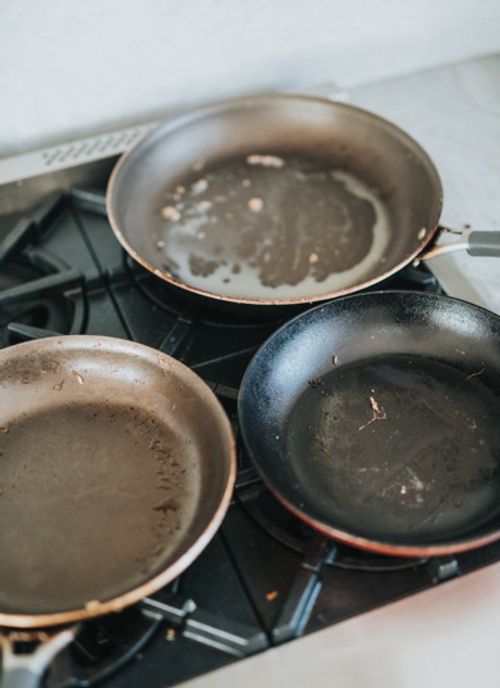What You Cook Your Food In Might Be Killing You
Dec 04, 2022 · 2 mins read
0
Share
There is a huge disconnect today between consumption of goods, how those goods are actually produced, and their effects on the body. This is true for everything from food to cookware. Because of this disconnect, people aren’t always aware of the hidden dangers in everyday items.
Save
Share
One of the most common culprits for this is non-stick cookware, prevalent in almost every kitchen in western households. Non-stick cookware is made by creating manmade nonreactive chemicals, called PFAS chemicals, which can be very harmful to humans and the environment.
Save
Share
PFAS chemicals are a type of persistent organic pollutant, or “forever chemical”, which are resistant to environmental degradation through chemical or biological means. Meaning that when you’re done with the pan, it will get thrown in a landfill where it will exist forever.
Save
Share
Because of their permanence, they don’t just get absorbed into the human body and excreted as a waste product. They will build up in the body and remain there, risking more problems the longer their use is continued.
Save
Share
In studies conducted on animals, PFOA - the main PFAS chemical in Teflon cookware - has been linked to cancer, liver damage, growth defects, immune system damage, and even death. The Environmental Protection Agency has listed it as a likely carcinogen.
Save
Share
According to the National Academies of Sciences, Engineering, and Medicine, PFAS exposure is linked to increased risk of decreased antibody response, high cholesterol, and even decreased infant & fetal growth.
Save
Share
Besides just leaching chemicals into the food, Teflon cookware has also been shown to release dangerous chemicals into the air during use. Toxic fumes released from heated non-stick has been shown to be deadly to birds, with hundreds of pet birds dying every year from the fumes.
Save
Share
Another large problem associated with non-stick cookware is the prevalent use of metal utensils with them. These can scratch up the Teflon coating, allowing big flakes of it to end up in food, getting ingested, and not doing anything good.
Save
Share
These chemicals are not only present in everyday cookware, but also exist widely in the cosmetic industry in lipsticks, mascara, eyeliner, and other such products, being readily absorbed through the skin and tear ducts.
Save
Share
While it is unlikely that you could possibly avoid such chemicals altogether, you can mitigate the risks in your own life by cooking with alternate cookware, such as cast iron, stainless steel, or carbon steel.
Follow me for more food, health & cooking content!
Save
Share
0
